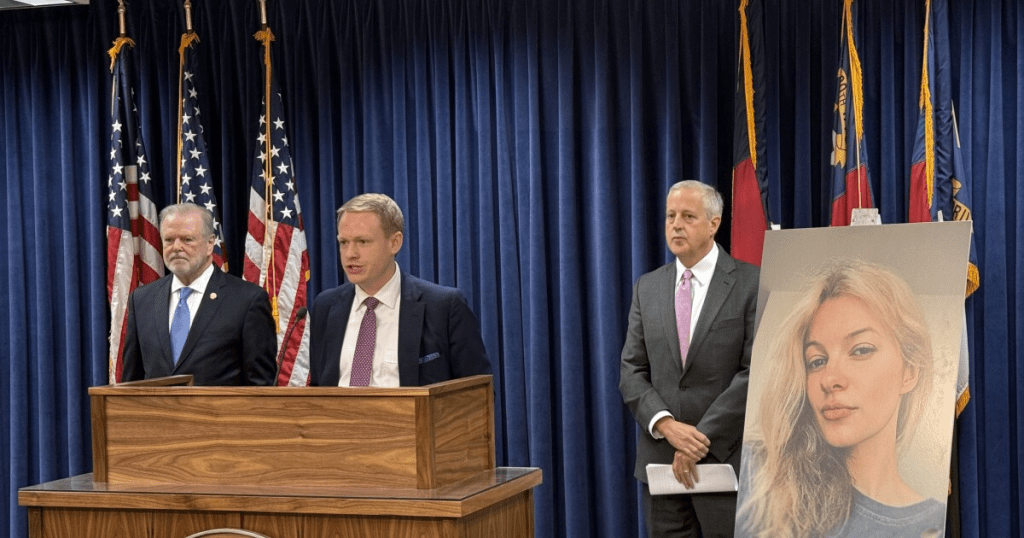North Carolina Governor Josh Stein Signs Iryna’s Law Banning Cashless Bail for Violent Offenses After Public Pressure Over Refugee’s Murder
North Carolina Governor Josh Stein has signed House Bill 307, widely known as Iryna’s Law, putting an end to cashless bail for violent offenses and closing long-criticized loopholes that allowed dangerous criminals back on the streets. The signing comes after nearly two weeks of delay, during which the bill sat on the governor’s desk despite overwhelming bipartisan support and public outcry for immediate action.

The law was named after 23-year-old Ukrainian refugee Iryna Zarutska, who was brutally stabbed to death in Durham in August 2024 by a man who had previously been released under the state’s cashless bail system. Her case became a flashpoint in the debate over pretrial release, symbolizing for many the risks of a system that critics said prioritized administrative ease over public safety. Lawmakers from both parties came together to push forward reforms, with the bill passing the state Senate 44–4 and the House 107–8, making it effectively veto-proof.

For Stein, the decision to sign Iryna’s Law was shaped not only by the political realities of the legislature but also by enormous public pressure. Social media campaigns urging the governor to act gained traction in the days leading up to the signing. Users circulated Iryna’s photo alongside calls for justice, demanding that her death not be forgotten and that leaders step up to prevent similar tragedies. The groundswell of voices online underscored how digital advocacy can influence policy in real time, amplifying grief and outrage into action.

Stein had initially raised concerns about certain provisions, particularly those expediting appeals in death penalty cases. Those hesitations contributed to the delay, but with bipartisan lawmakers standing firmly behind the bill and families of victims calling for urgent reform, the pressure became too great to ignore. When he finally signed the bill, the announcement was met with relief from both legislators and citizens who had feared further delay could signal a weakening of political will.

Iryna’s Law does more than eliminate cashless bail for violent crimes such as murder, assault, and armed robbery. It also tightens the standards that magistrates and judges must apply when determining pretrial release, reducing the likelihood that repeat violent offenders can quickly return to the community. Data from the North Carolina Department of Public Safety shows that more than 20 percent of violent crime suspects in recent years were rearrested while awaiting trial, adding urgency to the reform.
For many North Carolinians, the passage of Iryna’s Law is not just about statistics, but about a sense of safety and justice. Families who have lost loved ones to violent crime see it as a promise that their pain has spurred change. Advocates for victims’ rights are calling for similar measures in other states, arguing that public safety should not be compromised by loopholes that allow violent offenders to walk free on technicalities.

At the same time, the signing has reignited national conversations about balancing pretrial fairness with public protection. Critics of strict bail laws argue that financial requirements often disadvantage the poor, but supporters of Iryna’s Law counter that no price should outweigh the risk of releasing someone with a history of violence. The bipartisan nature of this reform suggests that, at least in North Carolina, leaders found common ground in the wake of tragedy.
In the end, the law is a tribute to Iryna Zarutska, whose name will now be forever tied to a major shift in criminal justice policy. For her family and for those who pushed relentlessly for change, the hope is that her story will prevent future lives from being cut short. While the law cannot undo the loss, it represents a promise that her death will not be forgotten, and that public safety will be strengthened in her memory.



